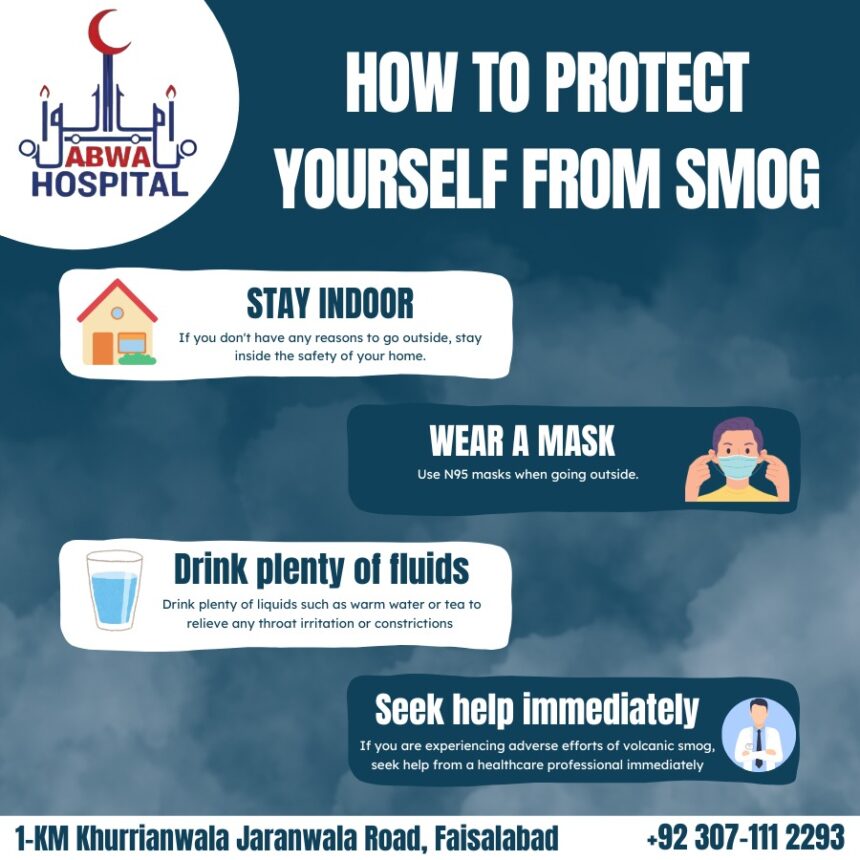Protecting yourself from smog, especially during days of high pollution, is important for maintaining your respiratory health. Here are several steps you can take to reduce your exposure:
1. Stay Indoors
- Limit Outdoor Activities: On days when smog levels are high, try to stay indoors, particularly if you have respiratory conditions (e.g., asthma, bronchitis), heart disease, or are sensitive to pollution.
- Create a Clean Indoor Space: Keep windows and doors closed to minimize smog from entering your home. If possible, stay in air-conditioned environments with good filtration systems.
2. Use Air Purifiers
- Invest in an Air Purifier: Use a high-quality air purifier with a HEPA filter to remove particulate matter and other pollutants from indoor air.
- Keep Air Circulating: If you're in an environment with air conditioning, ensure the filter is clean, as it can help circulate filtered air inside.
3. Monitor Air Quality
- Check Pollution Levels: Stay informed about local air quality conditions. Websites or apps like AirVisual, AQICN, or government sources often provide real-time pollution data and forecasts.
- Use a Personal Air Quality Monitor: Consider using a portable air quality monitor to gauge the pollution levels around you, especially if you live in an area with frequent smog.
4. Wear a Mask
- Use a N95 or P100 Mask: If you must go outside during high smog conditions, wear a high-efficiency mask (such as an N95 or P100) that can filter out fine particulate matter (PM2.5) and other harmful pollutants. These masks are designed to protect against airborne particles.
- Avoid Cloth Masks: Simple cloth masks or surgical masks are less effective against fine particles in smog.
5. Avoid High Traffic Areas
- Stay Away from Traffic: Smog is often worse near roads, factories, and industrial areas. Avoid congested roads, highways, and other areas with high emissions when possible.
6. Stay Hydrated
- Drink Plenty of Water: Smog can irritate the respiratory system, so staying hydrated helps keep your airways moist and may reduce irritation.
- Consume Antioxidants: Foods rich in antioxidants (such as fruits and vegetables) can help protect your body from the oxidative stress caused by air pollution.
7. Maintain Healthy Respiratory Habits
- Use Saline Nasal Spray: After being outside, use a saline nasal spray to rinse out pollutants that might have entered your respiratory system.
- Practice Breathing Exercises: Deep breathing exercises (such as diaphragmatic breathing) can help clear your lungs and reduce stress on your respiratory system.
8. Limit Vulnerable Groups' Exposure
- Protect Children and the Elderly: Children, the elderly, and people with pre-existing respiratory conditions are especially vulnerable to smog. Keep them indoors during smoggy conditions, and take extra precautions with air quality.
9. Use Natural Remedies (Cautiously)
- Steam Inhalation: Inhaling steam or using a humidifier can help soothe irritated airways, but be cautious not to inhale too deeply in very polluted air, as this can aggravate respiratory issues.
- Herbal Teas: Certain herbal teas (like ginger, peppermint, or chamomile) can help soothe irritated throats and may provide some relief from the symptoms of exposure.
10. Exercise Smartly
- Exercise Indoors: During smoggy days, opt for indoor exercises like yoga, walking on a treadmill, or using exercise equipment. Outdoor activities, especially intense exercise, can exacerbate the effects of pollution.
- Time Your Outdoor Exercise: If you must exercise outside, do so early in the morning or after the air quality improves, typically in the evening, when pollution levels may be lower.
11. Consult a Healthcare Provider
- Seek Medical Advice: If you have a pre-existing respiratory condition, talk to your doctor about specific precautions and medications you can take to protect yourself from smog's effects.
